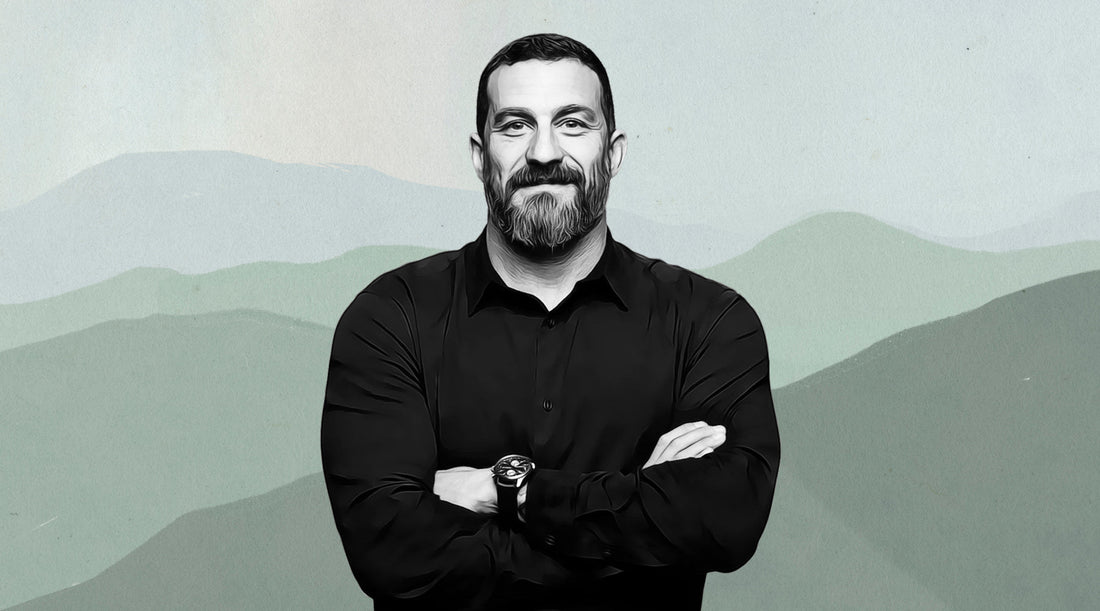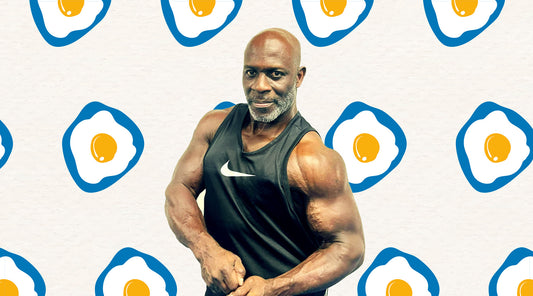Meditation has gone from a niche spiritual practice to a mainstream tool for health and performance. Today, countless people, from busy professionals to elite athletes, use meditation to manage stress, improve focus, and even sharpen creativity. But for neuroscientist Andrew Huberman, meditation is not just a passing wellness trend. It’s a powerful, scientifically backed practice with profound effects on the brain and body.
“There are now tens of thousands of scientific studies showing for instance there are known benefits of doing meditation for enhancing sleep, for enhancing focus, for reducing inflammatory cytokines, even improving outcomes in cancer, reducing pain, improving mood, reducing the symptoms of ADHD, and clinically diagnosed issues, and on and on and on.”
These benefits span almost every area of health - from immune function to mental clarity. Yet, despite the research, many people still think of meditation as something vague or overly simplistic.
Meditation Isn’t One-Size-Fits-All
When people hear the word meditation, they often imagine someone sitting quietly, cross-legged, with eyes closed. While that image isn’t wrong, Huberman stresses that it’s incomplete.
“We often think of meditation as something that everyone understands can benefit us. But we now sit at an interesting frontier where most people still think of meditation as just one thing. In reality, it’s much more like the word exercise.”
Just as exercise can mean a morning run, a heavy weightlifting session, or a high-intensity circuit class, each with unique effects on the body, meditation comes in different forms, each targeting different aspects of the mind and nervous system.
“Exercise could mean weight training, running, or high-intensity interval training - and each of those produces different results depending on what you do, how often you do it, and the specifics of your routine. The same is true for meditation.”
This is why people report such varied results. Some find meditation helps them fall asleep, others use it to boost concentration before work, and still others lean on it for emotional balance.
“Meditation can give you very specific results: more focus, better sleep, or even a combination of benefits. Just like with exercise, the outcomes depend on the type of practice and how consistently you do it.”
The Power of Daily Practice
If meditation is like exercise, then consistency is the key. Research shows that just a few minutes a day can transform brain function and mental health.
“A daily 13-minute meditation, traditionally focused on the third eye, involves an interoceptive practice of concentrating on breathing and the location directly behind the forehead. When done daily for about eight weeks, this practice has been shown to greatly improve mood, enhance sleep, boost cognitive ability, sharpen focus, and strengthen memory. A wide range of metrics were studied, and the benefits were significant.”
What’s encouraging is that even shorter practices can have an impact.
“You might wonder whether you need to do the full 13 minutes, or if shorter sessions could also work. Research from my laboratory has shown that even five minutes a day can provide meaningful benefits, including stress reduction and better sleep.”
This makes meditation accessible. You don’t need to block off half an hour or radically restructure your day - just a few minutes of focused practice can start shifting your mind and body toward better health.
Rethinking “Failure” in Meditation
Of course, anyone who has tried meditation knows that it doesn’t always feel easy. Minds wander. Thoughts race. Distractions creep in. But Huberman says that’s not a failure - it’s actually the work of meditation itself.
“So if you’re somebody who tries to meditate and finds that your mind just wanders, remember this: every time you catch yourself and pull your focus back - whether it’s to an external point, your breath, or your third-eye center - each of those moments is an opportunity to improve. They’re not failures; they’re essential parts of the improvement process.”
In fact, he suggests reframing meditation as a staircase:
“Think of it like ascending a staircase of refocusing. Every time you bring your attention back, you go up another step, and then another, and another. This mindset can move you away from the judgmental thought of, ‘Oh, I can’t focus on anything.’”
And over time, the process becomes smoother:
“Before long, you’ll notice that the refocusing process happens so quickly and smoothly that you barely even perceive it.”
This perspective shifts meditation from something intimidating to something trainable. Just as with exercise, every rep counts - even the wobbly ones.
Staying Consistent
Consistency, however, is where most people struggle. Even Huberman admits that his practice hasn’t always been steady. In recent years he’s started using an app called Headspace to help him become more consistent with his daily meditation practices.
“I’ve been meditating for a long time, but I have to admit it’s been somewhat on and off. Over the last 10, or even 20 to 30 years, there have been periods where I meditated consistently, and then times when I stopped. One of the terrific things about Headspace is that it offers meditations of different durations and types. As soon as I started using Headspace, I found myself meditating far more consistently.”
Headspace is one of the most researched meditation apps, with dozens of peer-reviewed studies supporting its benefits.
“Headspace is a meditation app backed by 25 peer-reviewed published studies. By now, most people have heard of the benefits of meditation - reduced stress, improved sleep, better cognition, and more.”
For Huberman, the key feature is flexibility.
“Switching over to Headspace as a meditation app really helped me stay consistent with my practice. That’s because they offer a huge range of meditations to choose from. Some are short, and some are longer, so I can always find one that fits into my schedule.”
This helps solve the common paradox: the busier and more stressed you are - the times when meditation is most needed - are often the times it feels hardest to do.
“Ideally, I would meditate every day for 20 or 30 minutes. But what I’ve found over the years is that I’ll start a meditation practice, and then as life gets more stressful or busier - ironically, exactly when I need to meditate more - I tend to meditate less often.”
An app like Headspace lowers that barrier, making it easier to fit meditation into daily life, no matter the circumstances.
Final Thoughts
The science is clear: meditation is one of the simplest, most accessible, and most effective tools for improving mental and physical health. And as Huberman reminds us, it’s not about perfection - it’s about showing up and practicing consistently.
“One of the great things about meditation is that it works the first time and every time. The more consistently I do it, the more positive benefits I seem to derive.”
Whether you meditate for five minutes or thirty, whether you practice on your own or with the help of an app, the key is to keep returning to it. Just like exercise, it builds strength over time - strength for your mind, your body, and your life.




